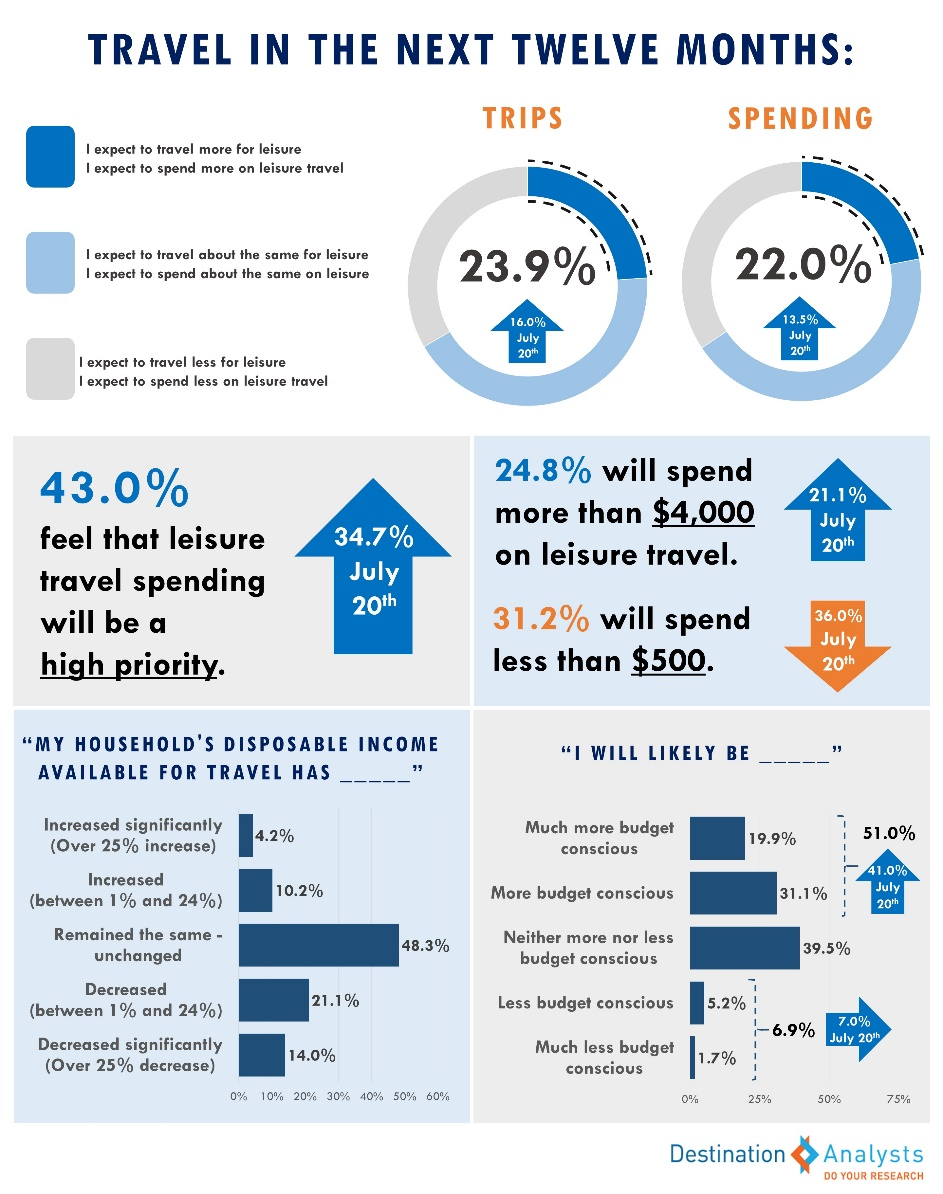
More Frequent Travel Could Be the Actual Aftermath of the Pandemic
The surprise pandemic this year has been followed by more than a few wrong predictions. Foremost, in my mind, is the explosive rally in the stock market. This was not expected back in March. Rising real estate prices and bidding wars would also seem to run counter to what we’d expect with double-digit unemployment. Yet, low-interest rates and an increased need to provide for family have led to significant increases in house prices in many areas. One of the industries that predictably has been hard hit is travel, but this sector may well find it bounces back quickly and perhaps with a broader customer base.
Flexibility in Workspace
While there has been a focus on the reduction in leisure travel and business travel, there has been a blind spot to the increased ability to work from anyplace. The average 9 to 5 office worker learned very quickly with COVID-19, often at the insistence of their employer, how to work from home. This new skill set is not going away. The options it allows in a Wi-Fi world may very well lead to a large increase in those taking advantage of their new geographic liberty by treating themselves to a “workcation.” Workcations, or doing your job someplace where you can enjoy being in a new setting, allow for sightseeing or play when the workday is over. This type of remote work/travel was already rising in popularity before the pandemic. The dramatic acceptance by employers of remote working during the lockdown has already increased rentals in secluded areas such as the mountains and beachside. Looking forward, as risks in metropolitan areas subside, there is no reason to believe they won’t become popular as well.
Travel Companies are Creating Packages to Cater to the Workcation Trend

Source:Travelzoo.com top 20 deal list
Do People Expect to Travel
Results of a survey released in August by Allianz travel insurance division revealed 44 percent of its U.S. travel insurance customers plan to travel before the year is out. In the same survey, 30 percent were unsure when they’d travel next, and even fewer felt they’d wait until next year or longer.
The survey showed a correlation between respondents’ ages and when they expected to travel next. A higher percentage of older customers were less likely to have an estimate of when they’d take their next trip, compared with younger customers. Specifically, 31 percent of those ages 55 and over replied they don’t know when they’d travel again, versus 26 percent of those under the age of 55 who were unsure.
Spending on Travel
The Allianz survey sentiment was echoed in another poll by destinationanalysts.com. They found that as people looked at their situation over the next 12 months, they had greater optimism. In August, they discovered 43.0% of American travelers say that leisure travel will be at least a somewhat high priority in their personal budget. This is up from 34.7% six-weeks earlier. A majority of American travelers say the pandemic has not negatively impacted the disposable income they have for travel (62.7%). Surprisingly, annual budgets for leisure travel have increased to an average of $3,258 from $2,721 (in July). However, with over a third of American travelers and concerns about the virus’s impact on finances still elevated, American travelers are planning on being more cost-conscious than they were prior to the pandemic.

Source: DestinationAnalysts.com, August 31, 2020
Take-Away
The fast workplace adoption of meetings online, virtual conferences, and seminars have forever altered how we conduct business and reduced some requirement for travel. However, as with other forecasts in 2020, the predicted death of the travel industry may have been premature. Business travel will always be important as face to face meetings simply get deals done. When the pandemic fears lift, one possible scenario is online meetings may take a more supporting role in supplementing in-person contact. This would bring business travel back up and perhaps increase business productivity. Individual travel, based on two separate surveys, should be on the rise by the end of the year. Since the population is now less tethered to an office, this may lead to a surge in a new class of traveler, remote workers who move about to various destinations while still putting in a full day’s work. This could actually lead to a greater number of travelers than pre-pandemic levels.
Paul Hoffman
Managing Editor, Channelchek
Suggested Reading:
Esports betting is on a Winning Streak
Will the COVID Crisis Permanently Change the Way We Work?
Do Analyst price targets Matter?
Enjoy Premium Channelchek Content at No Cost
Sources:
Update on American Travel in the Period of Coronavirus—Week of August 31st